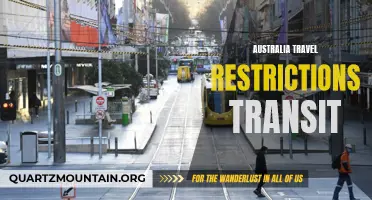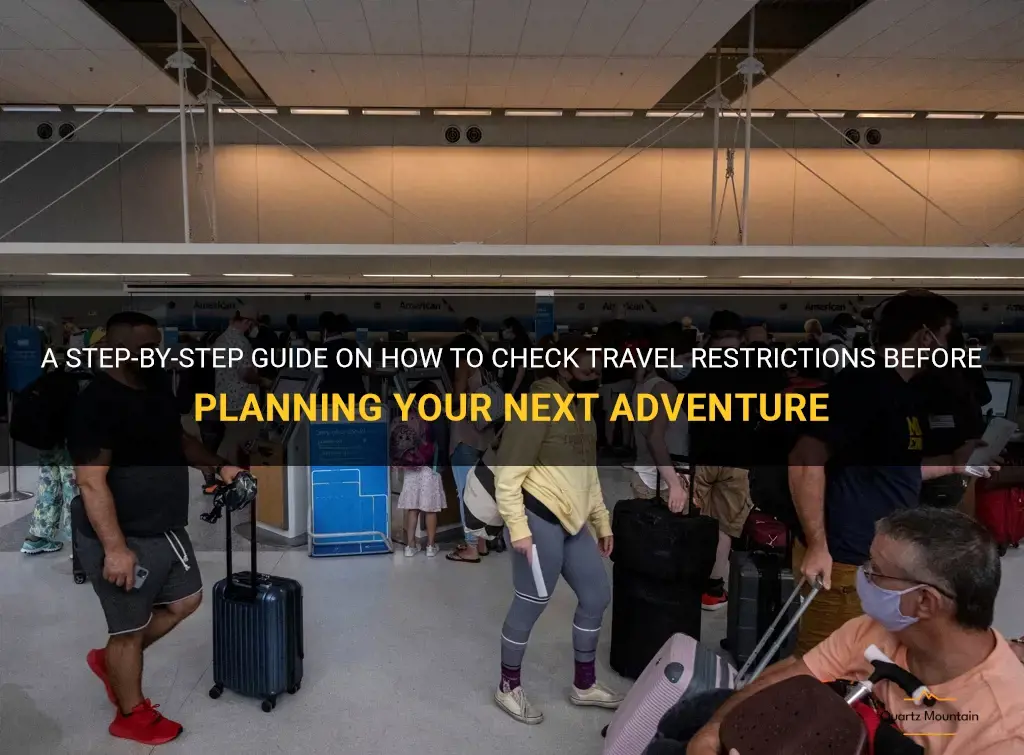
Planning a trip can be an exciting and thrilling experience, but before you embark on your adventure, it's important to ensure you're up to date with the latest travel restrictions. With the ever-changing global landscape, it can sometimes feel overwhelming to keep track of all the rules and regulations. However, fear not! In this article, we'll guide you through the process of checking travel restrictions, arming you with the knowledge you need to navigate your way to your dream destination hassle-free. From quarantine requirements to entry restrictions, we've got you covered, making sure your journey starts off on the right foot. So, grab your passport and join us as we dive into the world of travel restrictions and how to stay informed.
What You'll Learn
- What are the best reliable sources to check for travel restrictions globally?
- Are there any specific websites or apps that can provide up-to-date information on travel restrictions?
- What are the common travel restrictions in place due to the COVID-19 pandemic?
- How can I find information about travel restrictions for specific countries or regions?
- Are there any government or official websites that provide accurate and detailed information on travel restrictions?

What are the best reliable sources to check for travel restrictions globally?
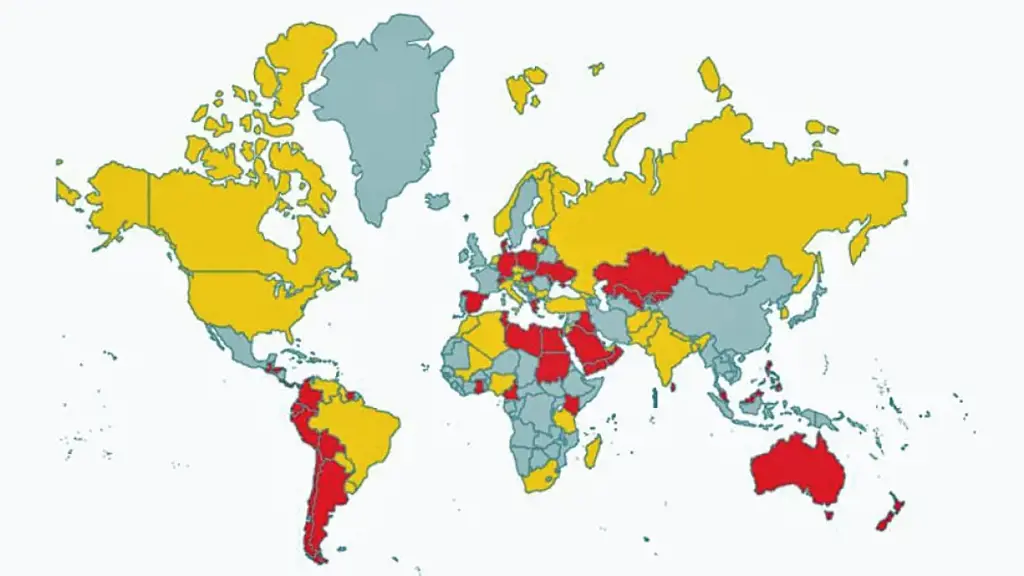
In recent times, travel restrictions have become a crucial factor to consider before planning any trip. With the ongoing COVID-19 pandemic and its ever-evolving situation, it is essential to stay updated with the most reliable sources of information.
When looking for travel restrictions globally, it is crucial to rely on trustworthy sources that provide accurate and up-to-date information. Here are some of the best sources to check for travel restrictions:
- Government Websites: One of the most reliable sources of information on travel restrictions is the official government websites of the country you plan to visit. Governments regularly update their websites with the latest travel advisories, entry requirements, quarantine rules, and any other restrictions in place. By checking the official government website, you can obtain the most accurate and current information.
- International Air Transport Association (IATA): The IATA has launched an interactive map on their website, providing comprehensive information on travel restrictions and entry requirements across the globe. This map is continuously updated and offers real-time data, making it an excellent resource for travelers seeking information on any travel restrictions.
- Centers for Disease Control and Prevention (CDC): The CDC not only provides guidance on health and safety during travels but also offers information on travel restrictions imposed due to health emergencies. Their website offers guidance specific to each country, including any travel restrictions, entry requirements, and health advisories you need to be aware of before your trip.
- World Health Organization (WHO): The WHO is another reliable source for global travel restrictions. They provide timely and accurate information on travel advisories and restrictions, particularly related to the COVID-19 pandemic. The WHO website offers country-specific details and guidelines for travelers, helping you navigate the travel restrictions effectively.
- Travel Advisories by Foreign Embassies: Many foreign embassies provide travel advisories and information on entry requirements and travel restrictions for their respective countries. These advisories are particularly useful for obtaining information directly from the source country and understanding any specific restrictions or guidelines they may have in place.
- Travel Agencies and Airlines: Travel agencies and airlines are excellent sources of information, as they closely monitor travel restrictions and advisories. Many travel agencies and airlines have dedicated web pages or provide updates on their official websites relating to travel restrictions and entry requirements. Following their social media accounts can also provide real-time updates on any changes or new restrictions.
- Local News Outlets: Local news outlets, both international and local, often cover travel restrictions and advisories. Keeping up with local news from your destination country can provide you with insights and updates that official sources may not always highlight.
It is instrumental to cross-reference information from multiple sources to ensure accuracy and reliability. Travel restrictions can change rapidly, and it is crucial to check for updates frequently, especially as your travel date approaches.
Remember, the above sources are general guidelines, but it is always advisable to consult with your local government authorities or travel agent for the most accurate and reliable information specific to your travel plans.
Understanding the Travel Restrictions in Connecticut and Massachusetts: What You Need to Know
You may want to see also

Are there any specific websites or apps that can provide up-to-date information on travel restrictions?
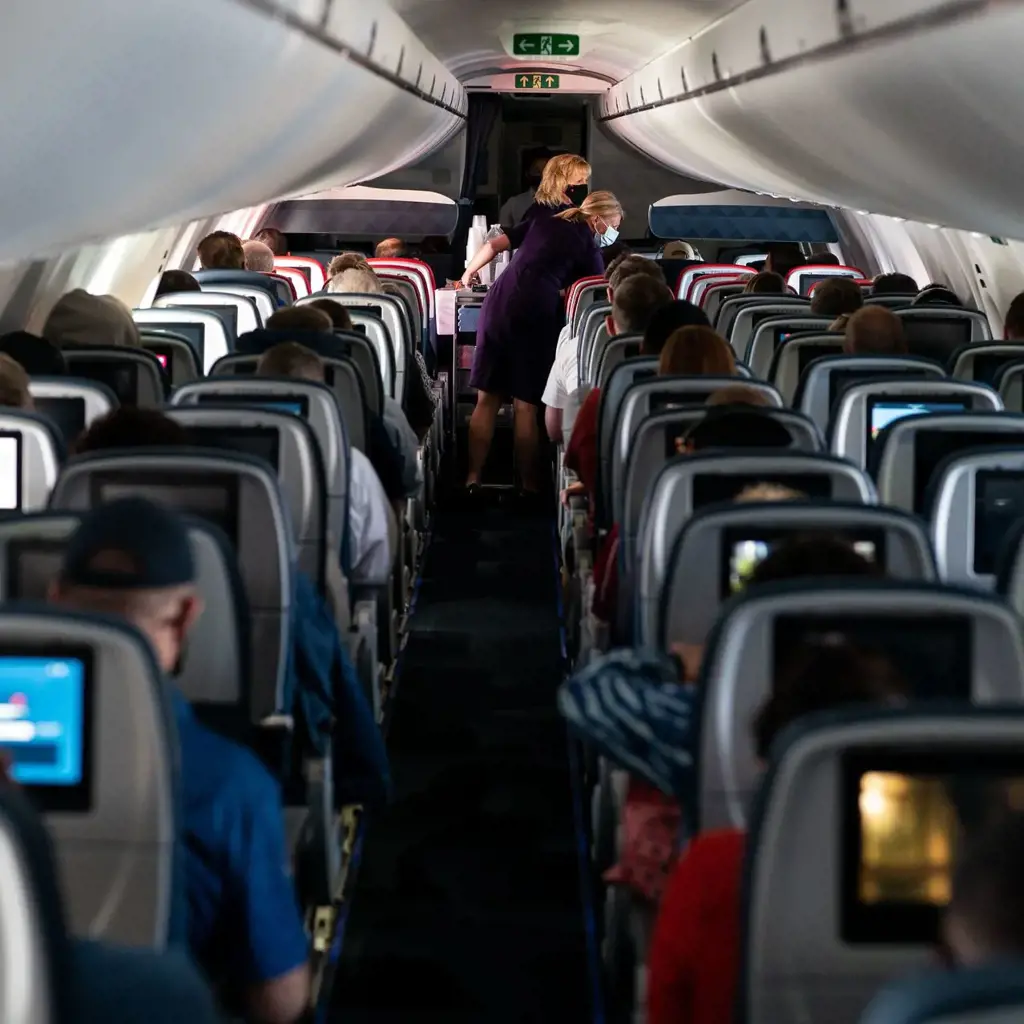
In today's rapidly changing world, travel restrictions can vary greatly depending on the country and the situation. It is crucial for travelers to stay informed about the latest travel restrictions before planning any trips. Fortunately, there are several websites and apps that provide up-to-date information on travel restrictions, offering valuable tools for travelers to make informed decisions.
One popular website that provides current and comprehensive information on travel restrictions is the International Air Transport Association (IATA) website. The IATA Travel Centre is a reliable source that offers detailed information on immigration requirements, passport validity, visa requirements, health regulations, and COVID-19 travel restrictions for different countries. This website is regularly updated and provides users with a wealth of information to help them plan their trips accordingly.
Another useful website for up-to-date travel restriction information is the official website of the Centers for Disease Control and Prevention (CDC). The CDC's website provides valuable information on travel health notices, including COVID-19 related guidance, travel recommendations, and requirements. This website is particularly helpful for travelers looking for specific information regarding health-related travel restrictions and guidelines.
When it comes to apps, one notable option is Timatic, which is developed by the IATA. Timatic is an essential tool for travelers as it provides accurate and up-to-date visa and travel document information for over 200 countries. This app allows users to easily check their travel restrictions, passport requirements, visa details, and necessary documentation in one place. Timatic is regularly updated to reflect the latest changes in travel regulations, providing travelers with peace of mind and convenience.
For travelers who prefer a more crowdsourced approach to gathering travel restriction information, TripIt can be a valuable app. TripIt allows users to store and organize their travel itineraries, and it also provides real-time travel alerts and information on potential disruptions, including travel restrictions. The app pulls information from various sources and provides personalized updates based on the user's travel plans, ensuring that they stay informed and prepared.
In conclusion, there are several reliable websites and apps available that provide up-to-date information on travel restrictions. The IATA Travel Centre and CDC's websites are helpful for comprehensive information on travel restrictions and health-related guidelines. Additionally, apps like Timatic and TripIt offer personalized travel restriction information, making it easier for travelers to plan their trips accordingly. Keeping an eye on these resources will help ensure that travelers are well-informed and prepared for any travel restrictions that may affect their journeys.
Navigating Hood River Travel Restrictions During Pandemic Times
You may want to see also

What are the common travel restrictions in place due to the COVID-19 pandemic?
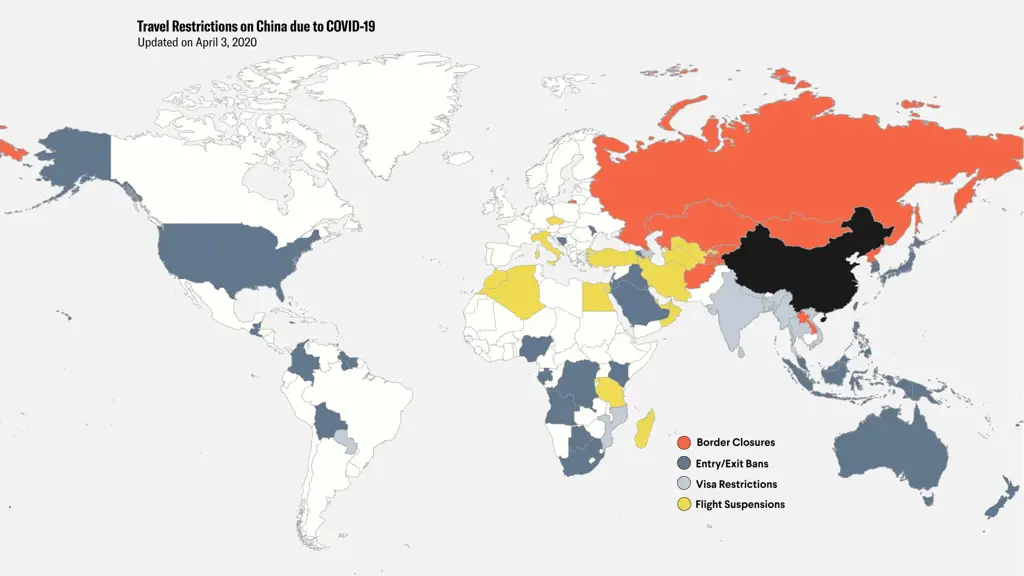
The COVID-19 pandemic has significantly affected travel around the world, and many countries have implemented various travel restrictions to control the spread of the virus. These restrictions can vary widely between different countries and are subject to change based on the current situation. Here are some of the common travel restrictions that have been implemented:
- Border closures: Many countries have closed their borders to foreign nationals or introduced strict entry requirements. This includes restrictions on non-essential travel and the requirement of negative COVID-19 tests or quarantine upon arrival.
- Quarantine requirements: Several countries require incoming travelers to undergo a mandatory quarantine period upon arrival. Quarantine durations can range from a few days to two weeks, and it may be mandatory to stay in designated facilities or hotels at the traveler's expense.
- Travel bans: Some countries have banned travel or imposed restrictions on specific regions or countries with high infection rates. This may include banning flights or imposing quarantine for travelers coming from specific areas.
- Flight cancellations: Many airlines have reduced or canceled their flights to and from certain destinations due to reduced demand and travel restrictions. This has resulted in limited travel options and increased costs for those who need to travel.
- Health screenings: Some countries conduct health screenings, such as temperature checks and health questionnaires, at airports and other travel entry points to identify and isolate individuals showing symptoms of COVID-19.
- COVID-19 testing requirements: Several countries require travelers to undergo COVID-19 testing before departure or upon arrival, with specific time frames and testing methods varying between countries.
- Travel advisories: Governments issue travel advisories and warnings to their citizens, recommending against non-essential travel to certain countries or regions with high infection rates. These advisories can impact travel insurance coverage and may affect the ability to secure refunds or compensation for canceled trips.
It's important to note that these travel restrictions and requirements can change frequently based on evolving circumstances and local outbreaks. Therefore, it is advisable to check the latest updates from reliable sources, such as government websites or the International Air Transport Association (IATA), before planning any travel.
Traveling during the COVID-19 pandemic requires careful consideration and planning. It is crucial to follow the guidelines and regulations set by the authorities to ensure the safety of oneself and others. Additionally, staying informed about the latest developments and maintaining flexibility in travel plans is essential to navigate the ever-changing travel landscape.
Understanding the AETC Travel Restrictions: What You Need to Know
You may want to see also

How can I find information about travel restrictions for specific countries or regions?

Travel restrictions and requirements for specific countries or regions can vary greatly, especially during uncertain times such as the ongoing COVID-19 pandemic. It is essential to stay updated on the latest information to ensure a safe and smooth journey. Here are several ways to find information about travel restrictions for specific countries or regions:
- Government Websites: The official websites of your home country's government or the destination country's government often provide the most reliable and up-to-date information on travel restrictions. Look for specific pages or sections dedicated to travel advisories or COVID-19 guidelines.
- Travel Advisory Websites: Various travel advisory websites compile information from multiple official sources to provide comprehensive travel advisories. Examples include the U.S. Department of State's Travel Advisory website, the UK Foreign and Commonwealth Office's Travel Advice website, and the Canada Travel website. These websites usually provide country-specific information on entry requirements, quarantine rules, and any other restrictions.
- Embassy or Consulate Websites: The websites of embassies or consulates of the destination country in your home country can be valuable resources for travel information. They often provide detailed information on visa requirements, entry restrictions, quarantine rules, and other travel-related updates. Find the official website of the destination country's embassy or consulate in your home country and look for any travel-related sections or announcements.
- Airlines and Travel Agencies: Airlines and travel agencies typically have the most up-to-date information regarding travel restrictions, as they are directly involved in the operations of flights and tours. Check the website or contact the customer service of the airline you plan to fly with or the travel agency you booked your trip through for any travel advisories or updates.
- Social Media and News Outlets: Following reputable news outlets, government travel departments, and official tourism boards on social media platforms can be an effective way to stay informed about travel restrictions. These channels often post timely updates regarding the latest travel advisories, entry requirements, and any changes in restrictions.
- Local Resources: If you have friends, relatives, or acquaintances living in the destination country or region, consider reaching out to them for information. Locals can provide firsthand knowledge about the current travel conditions and any specific requirements or restrictions that may not be readily available through official sources.
Remember that travel restrictions can change rapidly depending on the evolving situation, so it is crucial to double-check the information closer to your departure date. Always consult official sources and exercise caution when traveling, ensuring you comply with all necessary requirements to have a safe and seamless journey.
Zambia Travel Restrictions: What You Need to Know Before Visiting
You may want to see also

Are there any government or official websites that provide accurate and detailed information on travel restrictions?
Yes, there are several government and official websites that provide accurate and detailed information on travel restrictions. These websites are a reliable source for up-to-date information on travel advisories, quarantine requirements, and entry restrictions for various destinations.
One of the most trusted sources of information is the official website of the U.S. Department of State, travel.state.gov. This website provides country-specific travel information, including information on COVID-19 related travel restrictions, entry requirements, and health advisories. It also provides a list of countries with Level 4 travel advisories, indicating the highest level of travel risk.
Similarly, the official website of the United Kingdom government, gov.uk, provides accurate and detailed information on travel restrictions. The website offers country-specific guidance, including information on entry requirements, quarantine rules, and travel corridors. It also provides a list of countries exempt from quarantine requirements upon arrival in the UK.
The European Union also has an official website, reopen.europa.eu, which provides information on travel restrictions within the EU member states. The website presents an interactive map that allows users to easily access information on each country's travel restrictions, including quarantine requirements and testing rules. It also provides information on the EU Digital COVID Certificate, which facilitates travel within the European Union.
Furthermore, the World Health Organization (WHO) provides valuable information on travel restrictions and health advisories on their official website, who.int. The website offers country-specific guidance, including information on entry requirements, quarantine rules, and testing protocols. It also provides general advice on safe travel during the COVID-19 pandemic, such as practicing good hygiene and wearing masks.
It is essential for travelers to consult these government and official websites before planning any trips. Travel restrictions can change rapidly, and these websites offer the most accurate and up-to-date information available. Additionally, it is advisable to check the websites of the respective embassies or consulates of the countries you plan to visit, as they may have additional or more detailed information.
In conclusion, there are several reliable sources of information on travel restrictions, such as government and official websites. These websites provide accurate and detailed information on entry requirements, quarantine rules, and health advisories for various destinations. It is crucial for travelers to consult these sources before planning any trips to stay informed and ensure a smooth and safe journey.
Navigating Travel Restrictions for Visiting the Faroe Islands
You may want to see also
Frequently asked questions
To check travel restrictions for your destination, you can visit official government websites or use reputable travel websites that provide updated information on travel restrictions. These websites often have dedicated sections or search functions specifically for checking travel restrictions. It's important to check multiple sources to ensure that you have the most accurate and up-to-date information.
When checking travel restrictions, you should look out for requirements such as mandatory quarantine periods upon arrival, proof of negative COVID-19 tests, vaccination requirements, and any specific documentation or permits that may be required. You should also take into consideration any travel advisories or warnings issued by your own country's government or the destination country's government.
It is recommended to check travel restrictions as early as possible when planning your trip. Travel restrictions can change frequently and last-minute changes can disrupt your travel plans. By checking travel restrictions well in advance, you can make necessary adjustments to your itinerary or make an informed decision about whether it is advisable to proceed with your travel plans. It's also important to continue checking for updates periodically leading up to your trip, as travel restrictions can change even after you have already made your initial checks.



